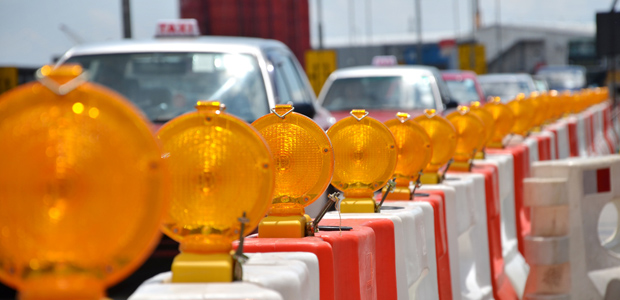
FHWA Kicks Off National Work Zone Awareness Week
DOT is reminding drivers to stay alert while driving near highway work zones.
Deputy Federal Highway Administrator Gregory Nadeau joined state and federal officials at the Washington Boulevard Bridge in Arlington, Va., to urge drivers to stay alert when driving near highway workers, according to a press release from the DOT. This kicked off the Federal Highway Administration's National Work Zone Awareness Week.
The theme this year is "Expect the Unexpected" and emphasizes the need for drivers to be prepared for changes such as reduced speed limits; narrowed, shifted, or closed lanes; and people who may be working on or near the road. In 2013, there were 579 fatalities in work zones, a decrease from 617 the year before.
"As the temperatures climb, thousands of highway workers nationwide are heading back to work to improve America’s roads," said U.S. Transportation Secretary Anthony Foxx. "To keep them safe, we owe them our full attention when driving through work zones, so please avoid distractions like cellphones and obey posted speed limits."
National Work Zone Awareness Week is intended to raise awareness of safety measures taken on roads all over the country. FHWA works with state and local transportation officials to promote improvements in work zone planning and design, increased law enforcement near work zones, enhanced worker training, and heightened awareness among drivers.
According to the agency, work zone crashes typically occur when drivers fail to obey posted speed limits, fail to adapt to changing road conditions, or use cellphones while driving. Since 2005, FHWA has awarded nearly $33 million in grants to promote work zone safety training and the National Work Zone Safety Information Clearinghouse.
FHWA also released new estimates March 24 showing that Americans drove 237.3 billion miles in January 2015, which was 4.9 percent more than the total in January 2014 -- the highest increase for any January since 2000. "These data make it clear that traffic volumes are growing nationwide," Foxx said. "To keep our highways safe and less congested, we should not only invest in our nation's infrastructure to expand capacity, but also look towards the future by encouraging greater technological innovations, which can make travel safer and more convenient."